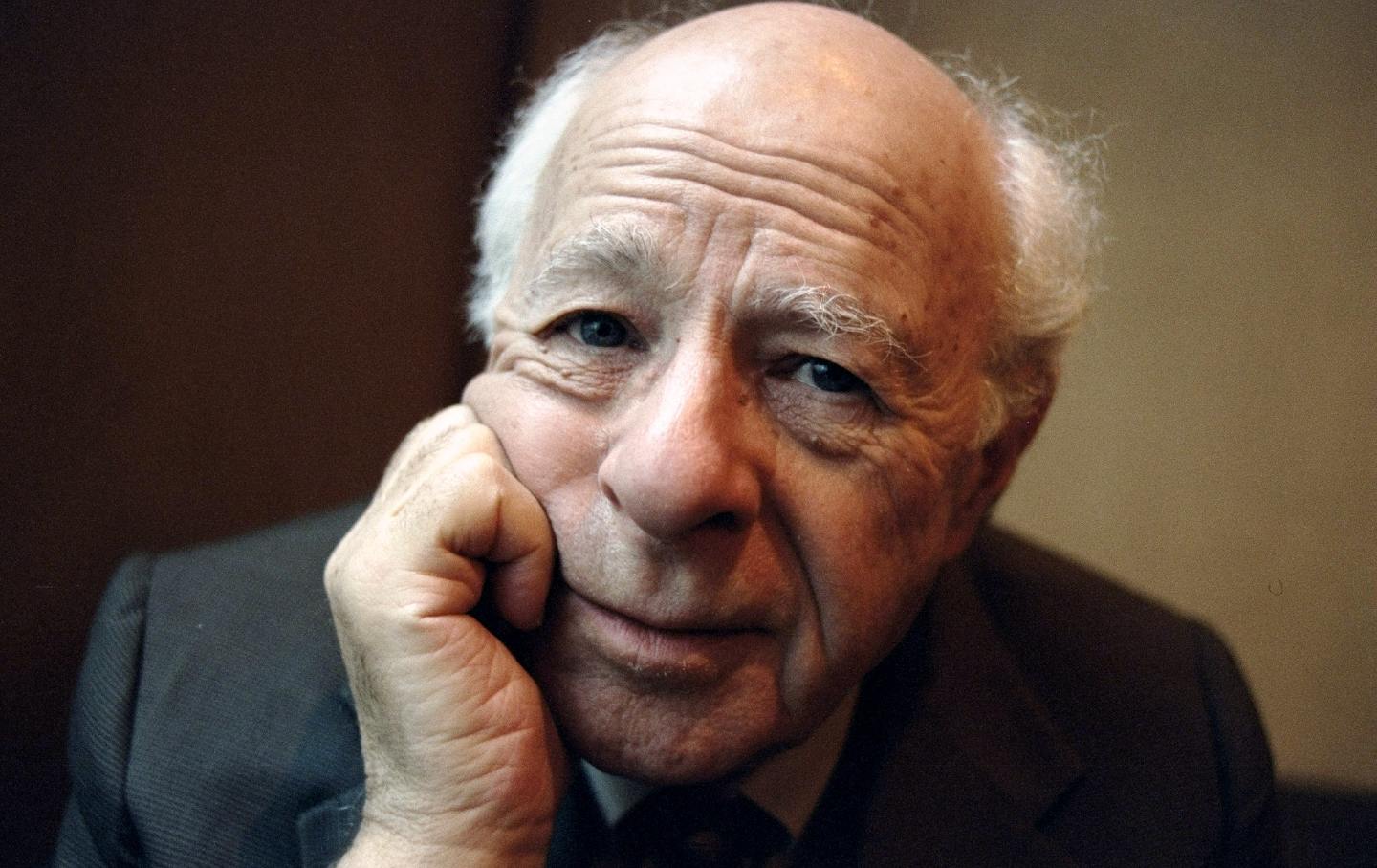My Breastfeeding Journey Would Not Have Been Possible Without My Abortions
Because my abortions allowed me to become a parent when the timing was right, I was equipped to overcome the barriers to breastfeeding in a way that many new working parents are not.

I remember my son’s first latch—the moment when we first connected and I felt the bliss of new motherhood. Holding eight pounds and nine ounces of sweetness on my chest, still connected by the umbilical cord, he latched on within minutes of being born. But what came instinctively to him felt mysterious to me, and our breastfeeding journey was not without its challenges. Now, after two years of breastfeeding, I realize how fortunate we are. We had the opportunity to breastfeed, and I attribute that privilege, in part, to my abortions.
Having access to abortions when I needed them played a significant role in my ability to breastfeed today. During my first abortion, I was unemployed, uninsured, and burdened with debt. If I had chosen to continue with that pregnancy, I would have lacked the resources and flexibility needed for successful breastfeeding. The same was true during my second abortion, where I faced a toxic workplace and no paid leave. While children born from these pregnancies wouldn’t have been doomed solely due to lack of breastfeeding, the key point is that I would have been stripped of the ability to commit to that process.
Barriers preventing parents from choosing or continuing breastfeeding are abundant in the United States, and they are among the factors many of us take into consideration when we are unintentionally or unwillingly pregnant. Paid parental leave is nonexistent, truly lactation-friendly workspaces are scarce, and breastfeeding demands a time commitment of around 1,800 hours just in the first year. While breastfeeding advocates secured a huge win in 2022 with the passage of the PUMP Act, a law that closed a national coverage gap and made many important changes to strengthen the right to break times and a private space for lactation, employers still struggle to adequately support lactating employees, and the federal government and vast majority of states do not guarantee any break time for lactation after one year.
As the first person in my family to breastfeed, I faced the journey with little prior knowledge. My son had lip and tongue ties, making breastfeeding difficult from the start and leading to inadequate weight gain during early infancy. Thanks to the support of a lactation consultant, research, and the luxury of time, I was able to overcome these obstacles. Throughout the first year, new issues arose including an overactive let down, which is when the milk comes out too quickly; latch problems that left me physically wounded; and the complete inability to produce milk via breast pump, meaning that in order to continue breastfeeding I would have to exclusively nurse. Thanks to my flexible, remote workplace, I did not have to choose between working or continuing to breastfeed.
During World Breastfeeding Week, August 1–7, it’s crucial to raise awareness and take action to support breastfeeding parents. Current recommendations from the World Health Organization, American Academy of Pediatrics, and UNICEF advocate for six months of exclusive breastfeeding and continuing breastfeeding up to two years and beyond if desired by the parent. However, the reality in the United States is a different picture. Although more than 80 percent of infants start out receiving some breast milk, only 55.8 percent receive breast milk at 6 months, with a mere 24.9 percent being exclusively breastfed during this period, and just 35.9 percent of infants continue breastfeeding at 12 months. While data after 12 months is limited, it’s safe to assume that numbers drop significantly after the child’s first birthday. Many new parents choose not to breastfeed for a myriad of reasons, and that decision is their right. What these statistics demonstrate, however, is that for those who would choose to breastfeed, systemic barriers have made it more difficult for them to follow the recommended guidance.
The disparities in breastfeeding rates are not solely a matter of personal choice or individual circumstances; they are deeply rooted in systemic issues that disproportionately affect marginalized communities. Birth justice must be central to the conversation surrounding breastfeeding. Historically, communities of color have faced numerous barriers to accessing quality health care, including a lack of prenatal and postnatal care workers in their communities. Creating a more equitable and supportive environment for all breastfeeding parents and babies can ensure that every child has an equal opportunity to thrive from the start.
Abortion access provides us the ability to choose if, when, and how we start our families. Because my abortions allowed me to become a parent when the timing was right, I was equipped to overcome the barriers to breastfeeding in a way that many new working parents are not. While I fully believe that exemplary parenting is possible regardless of whether a pregnancy was intended, the reality is that life becomes more manageable when parents can shape their families according to their own terms and timelines.
I am pro-abortion because I love babies, and because I understand how challenging parenting can be in today’s world. It’s all interconnected. Breastfeeding is a privilege when it should be a birthright for those who choose to do it. I am proud of our breastfeeding journey, and my hope is that all new parents have the opportunity to experience this joy, should they choose it. Let us strive for a society where breastfeeding support is equitable, where reproductive choices are respected, and where every parent can shape their family with dignity and autonomy.
Disobey authoritarians, support The Nation
Over the past year you’ve read Nation writers like Elie Mystal, Kaveh Akbar, John Nichols, Joan Walsh, Bryce Covert, Dave Zirin, Jeet Heer, Michael T. Klare, Katha Pollitt, Amy Littlefield, Gregg Gonsalves, and Sasha Abramsky take on the Trump family’s corruption, set the record straight about Robert F. Kennedy Jr.’s catastrophic Make America Healthy Again movement, survey the fallout and human cost of the DOGE wrecking ball, anticipate the Supreme Court’s dangerous antidemocratic rulings, and amplify successful tactics of resistance on the streets and in Congress.
We publish these stories because when members of our communities are being abducted, household debt is climbing, and AI data centers are causing water and electricity shortages, we have a duty as journalists to do all we can to inform the public.
In 2026, our aim is to do more than ever before—but we need your support to make that happen.
Through December 31, a generous donor will match all donations up to $75,000. That means that your contribution will be doubled, dollar for dollar. If we hit the full match, we’ll be starting 2026 with $150,000 to invest in the stories that impact real people’s lives—the kinds of stories that billionaire-owned, corporate-backed outlets aren’t covering.
With your support, our team will publish major stories that the president and his allies won’t want you to read. We’ll cover the emerging military-tech industrial complex and matters of war, peace, and surveillance, as well as the affordability crisis, hunger, housing, healthcare, the environment, attacks on reproductive rights, and much more. At the same time, we’ll imagine alternatives to Trumpian rule and uplift efforts to create a better world, here and now.
While your gift has twice the impact, I’m asking you to support The Nation with a donation today. You’ll empower the journalists, editors, and fact-checkers best equipped to hold this authoritarian administration to account.
I hope you won’t miss this moment—donate to The Nation today.
Onward,
Katrina vanden Heuvel
Editor and publisher, The Nation








